Onion Salt or Onion Powder: The Spice Rack Showdown
Onion salt combines the savory punch of dried onions with salt to create a convenient seasoning blend.
This powerful duo enhances almost any dish with its distinctive flavor profile that many home cooks appreciate.
Regular onion powder, meanwhile, offers concentrated onion flavor without the added sodium.
Both seasonings bring that essential onion taste to recipes when fresh options aren't available or practical.
The textures differ slightly - onion salt tends to dissolve more quickly because of its salt content.
Most professional chefs keep both versions in their spice cabinets for different culinary situations.
Discovering Onion Powder
Onion powder offers a concentrated flavor punch as a culinary condiment made from dehydrated, finely ground onions. Its distinctive sharp aroma combines sweetness with sulfuric notes, making it an excellent substitute for garlic powder in many recipes.
Widely used in cooking and seasoning blends, onion powder delivers a concentrated onion taste that enhances soups, sauces, marinades, rubs, and snacks.
It’s prized for its long shelf life and ease of use, making it a pantry staple in many kitchens worldwide.
Onion powder also provides some nutritional benefits, including trace vitamins and antioxidants, but is primarily valued for its bold flavor and versatility in both home cooking and commercial food production.
Ways To Use Onion Powder
Here are some popular ways to use onion powder:
Onion Salt: The Secret Flavor Booster
Onion salt is a seasoning blend made by combining finely ground onion powder with salt. It offers the savory, aromatic flavor of onions paired with the salty taste that enhances a wide variety of dishes.
Onion salt provides a convenient way to add both onion flavor and salt seasoning simultaneously, making it popular in spice racks and kitchens for quick flavoring. It’s often used in soups, stews, sauces, meat rubs, and salad dressings.
Because it contains salt, it should be used with care to avoid over-seasoning. Onion salt is valued for its ability to impart a mild onion taste and seasoning boost without the texture or moisture of fresh onions.
Ways To Use Onion Salt
Check out these ideal ways to use onion salt:
Onion Salt or Powder: Discover the Flavor Difference!
Onion powder and onion salt share many qualities but remain different products for good reasons. Check this table to see their different.
| Feature | Onion Powder | Onion Salt |
| Ingredient | 100% dehydrated, ground onions | Onion powder mixed with salt |
| Texture | Smooth, fine powder | Coarser, crystal-like due to added salt |
| Flavor | Strong onion aroma with sweetness and slight garlic notes | Milder onion flavor with saltiness; less pungent |
| Culinary Uses | Used in stews, grilled meats, dips, dressings, marinades | Used similarly; popular in roasted potatoes, chicken, and snacks |
| Control Level | Easy to control seasoning when homemade | Also easy to use; homemade mixes offer better salt control |
| Nutrition | Rich in vitamins C, B, potassium, manganese, antioxidants | Similar nutrients but higher sodium content due to salt |
| Health Benefits | Supports heart health, cancer prevention, diabetes management, bone and hair health | Similar benefits; low sodium versions better for heart and weight management |
Ingredient
Onion powder is made entirely from dehydrated and finely ground onions, containing no additives. It captures the pure essence of onions in a concentrated, shelf-stable form.
Onion salt is a blend of onion powder and salt, designed to combine the flavor of onions with the seasoning power of salt in one convenient product. The salt content varies by brand and can affect how much you use in cooking.
Texture
Onion powder has a very fine, smooth texture, similar to other powdered spices, because it is simply dehydrated onions ground to a powder. This fine texture allows it to blend seamlessly into sauces, rubs, and spice mixes.
Onion salt has a grainier, more crystalline texture due to the added salt crystals. This makes onion salt less smooth but still easy to sprinkle and use as a seasoning.
Flavor
Onion powder delivers a sharp aroma with notes of sweetness, sulfur, and just a touch of garlic-like flavor. In comparison, onion salt offers a more subtle taste than both powder and fresh onions while keeping some of the original sweetness and milder kick.
Despite their small flavor differences, onion salt works well as a substitute for onion powder in most recipes. Simply reduce the amount of regular salt called for in your dish to balance the saltiness already present in the onion salt, and your food will come out tasting just right.
Culinary Uses
Onion powder is excellent for adding depth to soups, stews, sauces, grilled meats, and vegetable dishes. It’s a staple in dry rubs, dressings, and dips where a smooth blend is desired.
Onion salt is ideal when you want to season foods quickly with both salt and onion flavor at once; perfect for roasted potatoes, chicken, snack mixes, and seasoning meats. However, since it contains salt, it’s important to adjust additional salt in recipes accordingly.
Control Level
When using store-bought onion powder or onion salt, the exact salt content and ingredients might vary, making it harder to control seasoning precisely.
Making your own onion salt blend at home lets you customize the salt-to-onion ratio to suit your taste and dietary needs. Both products are generally easy to use for seasoning, but homemade blends offer the best control over sodium intake.
Nutrition
Onion powder retains many of the nutritional benefits found in fresh onions, including vitamins C and B, potassium, manganese, and antioxidants that support immune and heart health.
Onion salt contains similar nutrients but also includes added sodium from the salt. This increases the sodium content significantly, which can impact heart health if consumed in excess. Using low-sodium salt in homemade onion salt blends can reduce this risk.
Health Benefits
Onion powder is known for its numerous health benefits, such as anti-inflammatory and antioxidant properties, which may help reduce the risk of chronic diseases like heart disease and certain cancers. It may also aid in blood sugar regulation, cold relief, and bone and hair health.
Onion salt shares many of these benefits because it contains onion powder but should be consumed in moderation due to its sodium content. Choosing low-sodium onion salt can help maintain these health advantages while supporting cardiovascular health.
Swapping Onion Powder and Salt (or Vice Versa)
You can substitute onion powder and onion salt, but you need to adjust for the salt content. Using onion salt instead of onion powder means you should reduce or skip adding extra salt to avoid over-salting.
Because onion salt is diluted with salt, you might need a bit more for strong onion flavor, but balance carefully with saltiness.
If you swap onion salt for onion powder, add extra salt separately to match the seasoning. Onion powder has a stronger onion flavor, so start with less and adjust to taste.
Substitutions work best in dishes like soups, stews, and marinades where seasoning can be easily controlled. For delicate recipes, substitute cautiously and taste as you go.
Check out this substitution ratio table for brief details.
| Substitute | Ratio | Notes |
| Onion Salt instead of Onion Powder | 1 teaspoon onion salt = 1 teaspoon onion powder; reduce other salt in recipe by 1 teaspoon | Onion salt contains salt; adjust recipe salt accordingly |
| Onion Powder instead of Onion Salt | ¾ teaspoon onion powder + ¼ teaspoon salt = 1 teaspoon onion salt | Adds onion flavor and salt separately for control |
Storage Guide of Onion Salt/Powder
Proper storage is essential to maintain the flavor and freshness of both onion powder and onion salt. Both spices should be kept in airtight containers to prevent moisture absorption, which can cause clumping and loss of potency.
Store them in a cool, dry place away from direct sunlight and heat sources, such as a pantry or cupboard. Exposure to heat and humidity can degrade the flavor and aroma over time.
When stored correctly, commercial onion powder and onion salt typically have a maximum shelf life of up to 5 years. Even past their expiration dates, these products may still be usable but could develop lumps or lose some flavor intensity.
Homemade onion powder and onion salt, however, have a much shorter shelf life. They generally last between 6 to 8 months.
| Type | Storage Location | Typical Shelf Life |
| Commercial Products | Room temperature, airtight container, away from sunlight | 3 to 4 years (up to 5 years max) |
| Homemade Products | Cool compartment of refrigerator | 6 to 8 months |
| Shelf Life | 2 to 3 years | 2 to 3 years |
How to Know That Onion Salt/Powder Goes Bad
To tell if your onion powder or onion salt has gone bad, start by checking its appearance and texture. If you notice clumping or hard lumps, it may indicate moisture exposure, which can reduce quality.
Next, smell the spice. Fresh onion powder and onion salt should have a strong, characteristic onion aroma. If the scent is weak, musty, or off, the spice has likely lost its potency.
Taste can also be a clue; if the flavor is dull or stale, it’s time to replace it. Additionally, look for any signs of discoloration or mold, which means the product is spoiled and should be discarded immediately.
Making Onion Powder At Home
Making onion powder at home is a simple and cost-effective way to add fresh, natural onion flavor to your dishes without additives. Here’s a step-by-step guide to help you create your own high-quality onion powder:
Homemade Onion Salt Is Easy As Well
Making your own onion salt is also easy and lets you control the saltiness and flavor. Here’s a friendly step-by-step guide:
Popular Commercial Brands for Buying Onion Salt and Powder
Popular commercial brands for onion powder and onion salt are known for their consistent quality, flavor, and wide availability. If you still don't know which brands to choose, consider these top trusted ones, such as:
Got Questions? We’ve Got Solutions
1. Can I substitute onion salt for onion powder?
Yes, you can substitute onion salt for onion powder, but reduce the regular salt in your recipe since onion salt is about 1 part onion powder to 3 parts salt. Use 1 teaspoon of onion powder instead of 4 teaspoons of onion salt.
2. Which is better for low-sodium diets?
Onion powder is much better for low-sodium diets since it contains no salt. Onion salt typically contains about 75% salt, making it unsuitable for those monitoring sodium intake.
3. How long do onion salt and powder last?
Both onion salt and powder stay fresh for about 2-3 years when stored in airtight containers away from heat, light, and moisture. Their potency gradually decreases over time, so replace them if the aroma weakens.
4. Which has a stronger onion flavor?
Onion powder has a more concentrated onion flavor since it's pure dried onion. Onion salt's flavor is diluted by the salt content, so you'll need more of it to achieve the same onion intensity.

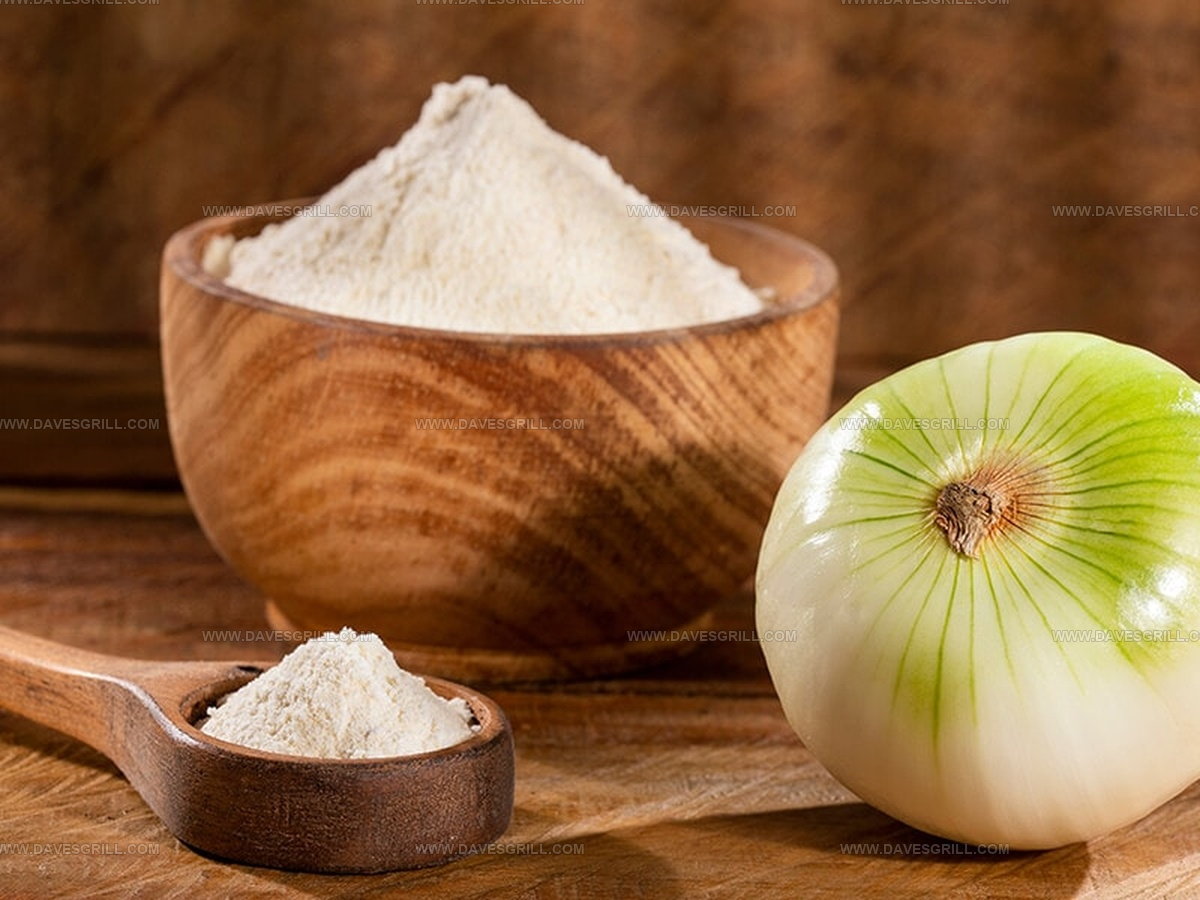
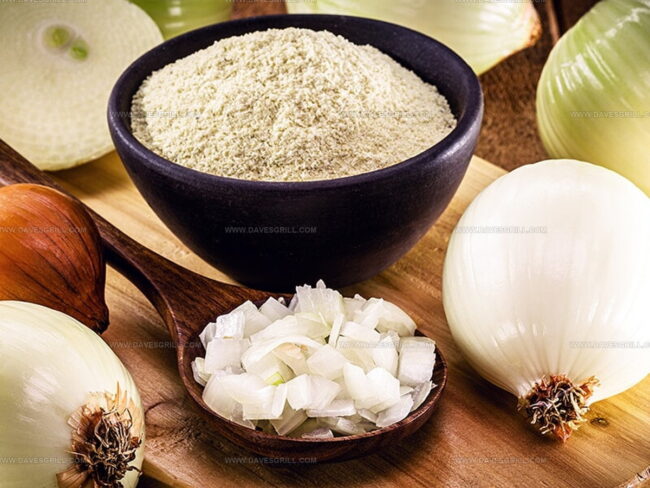
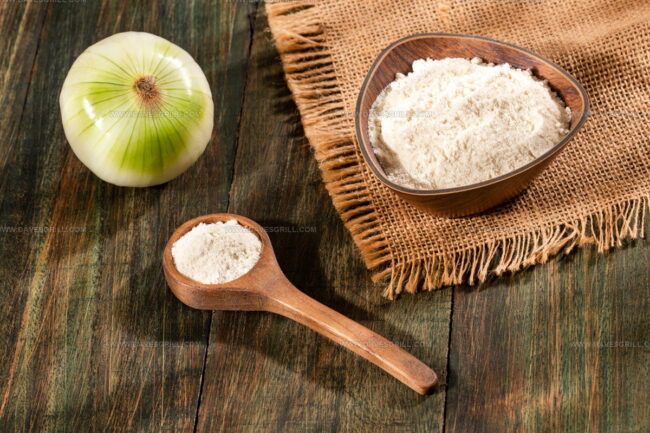
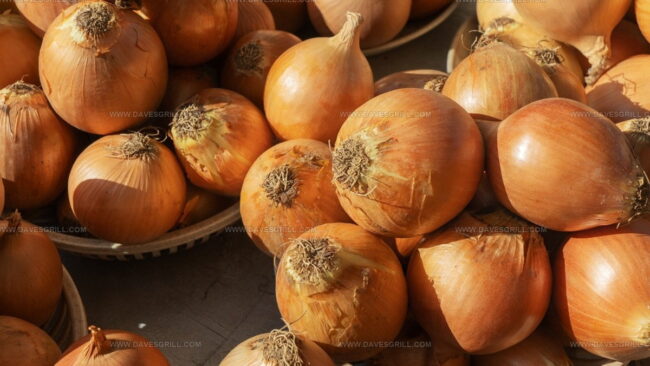
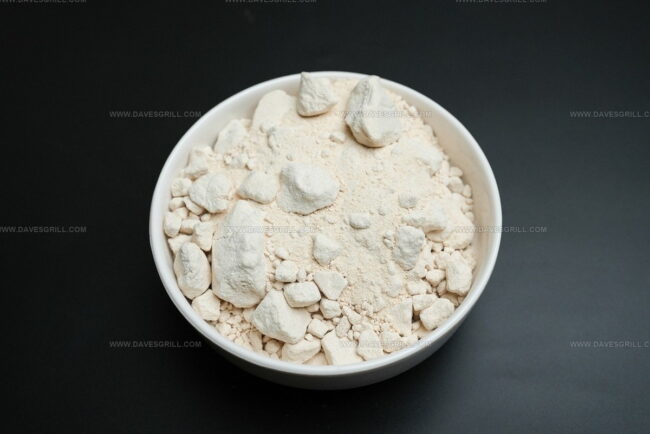
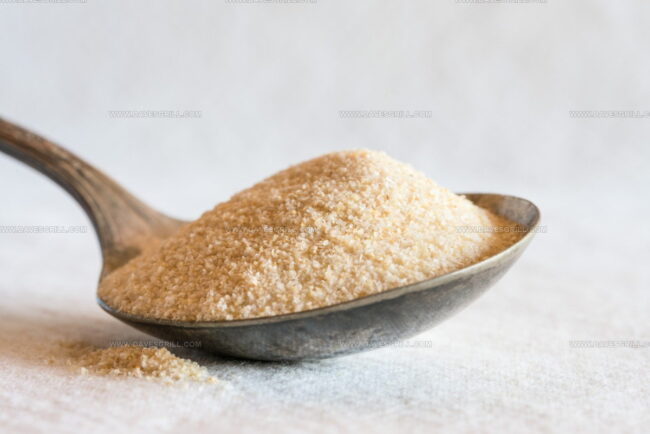
Emily Lawson
Content Creator & Culinary Specialist
Expertise
Education
Oregon Culinary Institute
Diploma in Culinary Arts
Focus: Emphasis on farm-to-table cooking, sustainable practices, and the fusion of global flavors with traditional grilling methods.
Emily Lawson is the content creator at Daves Grill, turning tasty ideas into clear, easy recipes. Based in Portland, she trained at the Oregon Culinary Institute and loves cooking with fresh, seasonal ingredients, especially grilled veggies and global flavors.
Emily mixes food writing with hands-on cooking to bring you recipes that feel fun, not stressful. Her goal is to make every dish simple, flavorful, and worth coming back to. Together, she and Dave serve up real food, one recipe at a time.